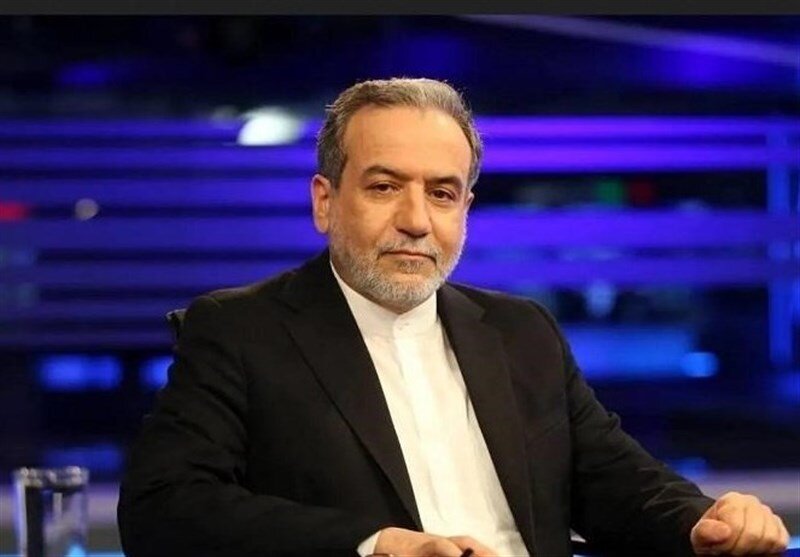Araghchi Syrian crisis result of USIsraeli scheme armys unexpected frailty
Araghchi: Syrian crisis result of US-Israeli scheme, army's unexpected frailty
TEHRAN – In a televised interview, Iranian Foreign Minister Abbas Araghchi attributed the recent fall of the Syrian government to a covert plan orchestrated by the United States and the Israeli regime.

The top diplomat's comments came on Sunday, following the collapse of the Syrian government when militant groups, led by Hayat Tahrir al-Sham (HTS), captured the capital, Damascus.
Araghchi stated, "Both analytically and in terms of intelligence, there was a behind-the-scenes design by the U.S. and the Zionist regime to create problems for the Axis of Resistance."
He revealed that Iran and Syria were aware of the militants' movements in Idlib, crediting their intelligence systems.
However, the Syrian army’s performance fell short, leading to rapid developments and psychological warfare — a situation even former President Bashar al-Assad lamented.
"The intelligence systems of Iran and Syria were fully aware of the movements in Idlib and had provided complete information to the Syrian government," he said. "What was unexpected was the Syrian army's inability and the speed of developments."
Iran-Syria relations and military presence
The foreign minister highlighted Iran’s strong ties with Syria over the past forty years, particularly in resisting the Israeli regime, combating ISIS, and advising the Syrian government on internal matters.
He underscored that Iran’s military presence in Syria was solely to fight ISIS, explaining that following ISIS's defeat, Iran’s military role ended, shifting focus to supporting Resistance groups and advocating for dialogue between the Syrian government and opposition factions.
Araghchi emphasized the importance of the Astana Platform, a trilateral negotiation effort involving Iran, Russia, and Turkey, aimed at reducing tensions and promoting internal reforms in Syria.
"This process has been successful over the past ten years in establishing peace and tranquility in Syria," he noted. "The recent aggression was at odds with the Astana process."
A significant concern for Iran remains the potential exploitation of the situation by the Israeli regime, the top diplomat said.
Araghchi warned that despite Israel's aggressive maneuvers, Resistance movements like Hezbollah possess the capability to defend themselves and maintain resistance for extended periods.
‘Resistance will endure’
The top diplomat rejected the notion that the fall of the Syrian government would weaken Resistance forces, asserting that Resistance is a philosophy rooted in steadfastness and will endure independently of geographical constraints. "Resistance has found its way and will continue to grow," he affirmed.
Araghchi also addressed the indirect exchange of messages between Iran and the U.S.
The foreign minister explained that this ongoing communication covers various issues, including developments in Syria, to prevent misunderstandings and manage regional dynamics.
He stated, "The exchange of messages between Tehran and Washington is not anything new, as the process has always been in progress via the channel of Switzerland’s embassy."
Regional implications and future challenges
The Iranian foreign minister expressed concerns about the possibility of the conflict spreading beyond Syria, potentially affecting Iraq and the entire region.
He emphasized the need for vigilance against the continuous conspiracies of the Israeli regime and highlighted the importance of regional cooperation to achieve stability.
"Based on both analysis and some information, there is a possibility that the conflicts could spread not only to Iraq but to the entire region," he warned.
Reflecting on the future of Syria, Araghchi acknowledged the challenges of achieving consensus among different factions and groups.
He reiterated Iran’s position in supporting the Syrian people's will and promoting dialogue between the government and legitimate opposition groups that are not designated as terrorists.
"We encouraged and insisted on dialogue between the government and legitimate opposition groups that are not terrorist groups," he noted.
Without mentioning specific countries, Araghchi highlighted the dissatisfaction among certain West Asian nations concerning the situation in Syria.
"Some regional countries are currently angry about the situation in Syria, and the beginning of movements from certain sides is anticipated, just as it happened in Libya and Sudan. It was also somewhat similar in Lebanon," he remarked.
He stressed that the divergent interests of these countries could obstruct the peace process.
Araghchi concluded by affirming Iran’s commitment to closely monitoring developments in Syria and its readiness to engage with its future government based on its policies towards Iran and the broader Resistance Axis.
source: tehrantimes.com